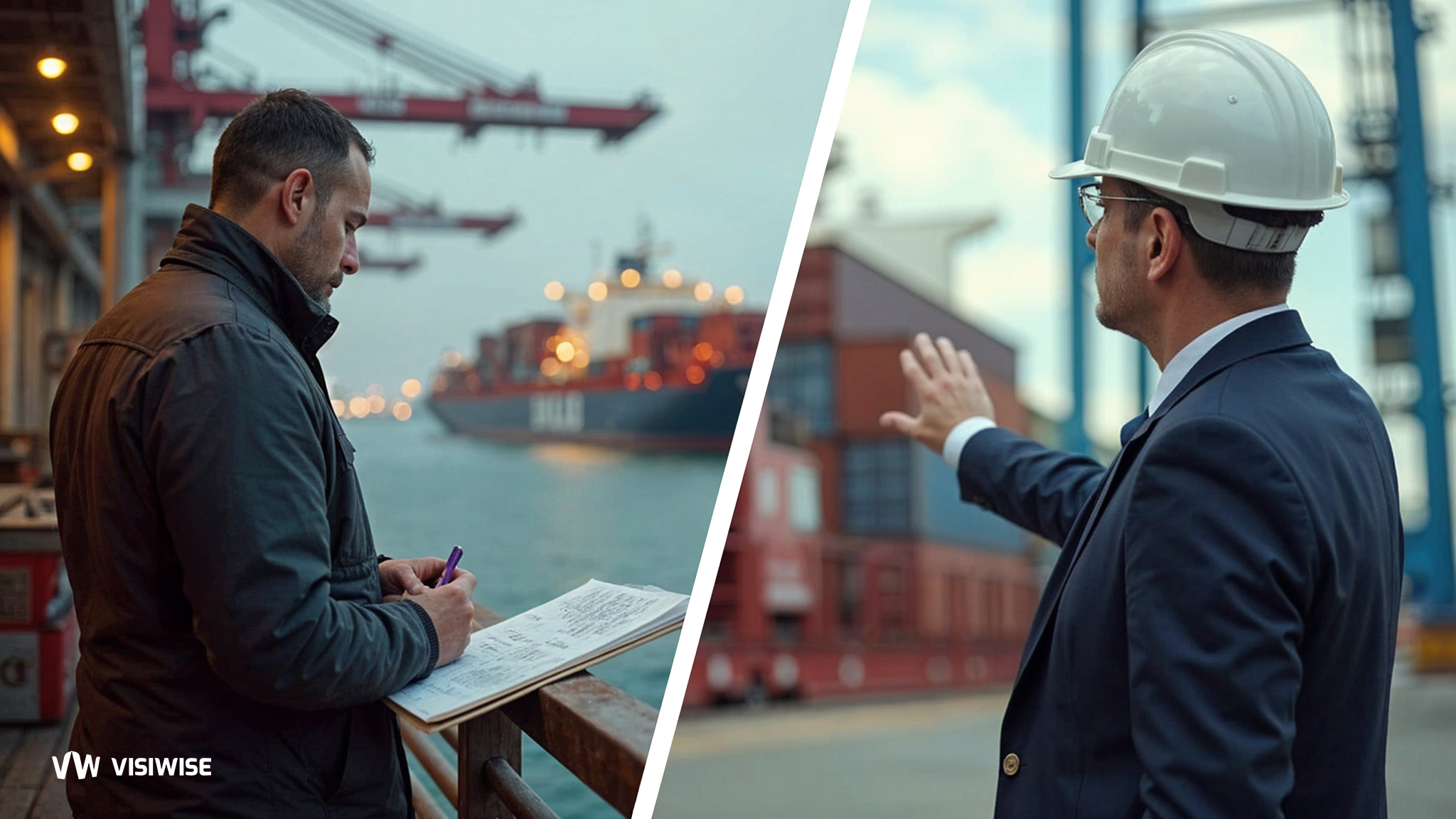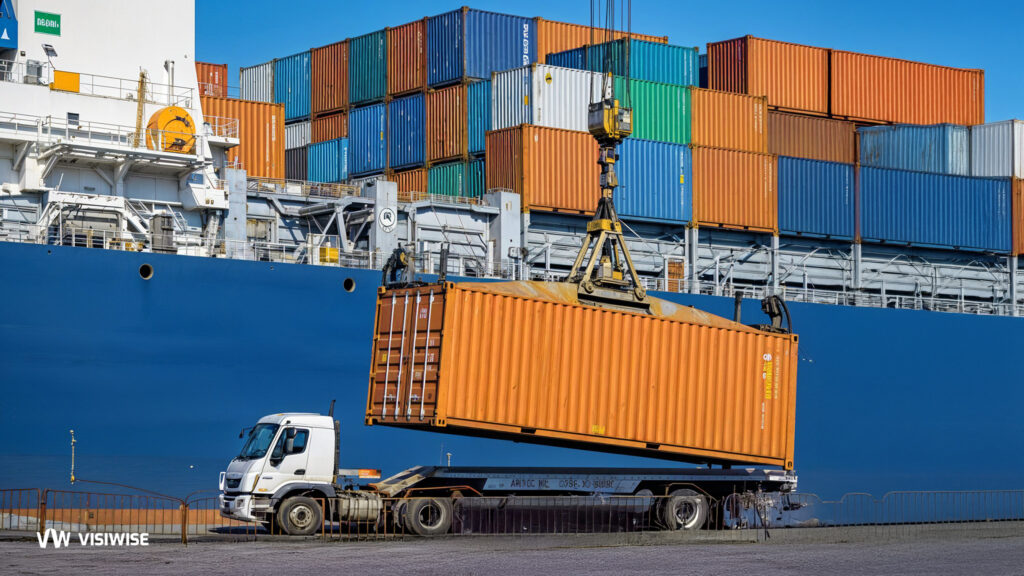In Shipping, we hear a lot about freight brokers and freight forwarders, but what exactly is the difference between them? Freight forwarders and freight brokers both provide essential functions in transporting freight on behalf of the third party. Freight forwarders negotiate freight rates, help arrange for goods to be moved and ensure that deliveries are made to the right person. In the end, only the best shippers and carriers are given the task.
Freight broker companies handle many moving parts to make sure that freight arrives at its final destination safely and securely. For large shipments shipped globally, the process can take weeks — and has many intermediaries and handoffs along the way.
Before we explore the difference between a freight broker and freight forwarder, let’s briefly discuss what each term means.
Defining Freight Brokers
A freight broker’s job is relatively simple – they connect shippers with individuals who will haul the freight (carriers). Many carriers opt to work with freight brokers since, in addition to helping them to find customers, the brokers also amount to providing them with greater volume than they would ever receive by simply working directly with shippers.
After all, freight brokers have greater leverage to negotiate pricing with carriers, and individual consumers prefer working with them.
Because they represent multiple shippers, brokers can also offer carriers a steadier stream of cargoes than a single customer can. This allows shipping companies to keep full, stocked fleets of vehicles more easily.
Defining Freight Forwarders
On the other hand, freight forwarders have greater involvement with the shipping process. A forwarder receives a shipment from the client (the shipper) and is responsible for forwarding it between two points, be it land, air, or sea.
They handle warehouse management, pack the shipment or separate it as necessary or-at the discretion of the customer, oversee the cargo’s forwarding as per the customer requirements, negotiate with the packing provider, and follow along with the freight the arrives at its destination.
Key Differences Between Freight Forwarders and Brokers
As you now know the actual meaning between freight forwarder vs. broker, let’s find out the core differences between them to have a more solid understanding of each.
- A freight forwarder organizes transportation through independent carriers and freight brokers. Without ever assuming ownership of the freight itself, a freight broker serves as a middleman between the person who ships the delivery, freight forwarder, and the carrier. However, a freight forwarder takes control of the cargo and utilizes its resources to offer storage, handling, packing, consolidation, and documentation.
- Typically, a freight broker solely coordinates domestic freight transportation. In contrast, many freight forwarders work globally and are permitted to plan the shipping of commodities over international boundaries by the Federal Motor Carrier Safety Administration (FMCSA).
- Since a freight broker never receives the shipment, their legal responsibility for the shipper’s goods is sometimes limited (although a forwarder broker must still carry liability insurance). Greater legal responsibility for the cargo, including the obligation to ensure it, is taken on by a freight forwarder. Due to the various legal ambiguities surrounding these liability concerns, cargo claims against brokers are frequently resolved through courts and insurance companies.
Benefits of Using a Freight Broker
Save Time
From finding carriers and negotiating prices to tracking shipments and troubleshooting, freight brokers take care of tasks that give you more time.
Get the Best Rates
Their connections and volume discounts help secure the best deals, avoiding costly mistakes or unexpected fees.
Reliable Carriers
Brokers ensure you work with trustworthy carriers, delivering freight on time and damage-free.
Expert Advice
Brokers find efficient, cost-effective, and trackable transportation, simplifying complex shipping needs.
Build Partnerships
Freight brokers prioritize your success, fostering long-term relationships that benefit your business.
Benefits of Using a Freight Forwarder
Pickup and Delivery
Freight forwarders ensure reliable cargo delivery, meeting deadlines and maintaining client trust. Their expertise in end-to-end logistics boosts business productivity and efficiency.
Efficient Tracking
With advanced tracking systems, freight forwarders let you monitor shipments in real time, ensuring transparency and peace of mind.
Security
Freight forwarders handle cargo with care, using proper tools and documentation to guarantee safe and timely delivery, even for fragile items.
Cost-effectiveness
Freight forwarders offer competitive rates by consolidating shipments and providing discounts for bulk or loyal customers, ensuring high-quality service at lower costs.
Documenting
Freight forwarders handle all legal documentation, ensuring compliance with international regulations and preventing delays caused by bureaucratic issues.
Managing Inventory
With vast networks and resources, freight forwarders streamline inventory management, saving businesses time and money while enabling hassle-free operations.
Warehousing
Freight forwarders provide storage, when delivery may be delayed, or when shipments arrive at their destination countries earlier as planned, goods can be safely stored in warehouses.
How to Decide Between a Freight Forwarder and a Broker
If you are trying to decide between a freight forwarder and a broker, consider how much control and responsibility you want in your shipment: a broker is likely to be your best option if you need a somewhat passive approach that simply matches you with carriers, but the forwarder is a better option if you need end-to-end logistics management that also includes customs clearance, warehousing and full accountability for your shipment; a forwarder, ultimately, takes on far greater direct responsibility for your cargo than a broker does, who primarily acts as an intermediary between shippers and carriers.
When should you get a freight forwarder
International shipping
When you need someone to help you clear through custom and international laws.
Complex logistics
If your shipment requires multiple modes of transportation, warehousing or special handling.
Complete control and responsibility:
When you prefer one contact person to handle your shipment process seamlessly.
When should you get a freight broker
With simple shipping needs
If you’re making simple domestic shipments and just need someone to help you find a carrier and bargain for rates.
Cost-based strategy
If your top priority is obtaining the most competitive price for your shipment.
Flexibility in carrier selection
When you would like to have a choice to compare options from multiple carriers.
Things to consider when selecting:
Industry expertise: Choose a provider that specializes in your industry and shipping type.
Reputation and track record: Assess the company’s reliability and customer service.
Pricing structure: Learn about the payment for services and whether there are any hidden costs.
Network of carriers: Analyze their carrier network to ensure you get the proper options for your shipment
Endnote
Freight forwarders and freight brokers serve crucial functions in the logistics of moving goods. If you’re in the market for a full-service logistics partner, freight forwarders are a good option, while if you’re simply looking to find reputable carriers at reasonable rates, a freight broker will be a good fit. Understanding your shipping needs and what is available, allows you to choose the right partner to keep your supply chain running smoothly.
FAQs
Can a freight forwarder be a broker?
A freight forwarder may act as a broker in some situations by connecting shippers with carriers without providing full logistics services.
What are the cons of using a freight forwarder?
Less flexibility for smaller, simpler shipment and increased costs
When would you use a freight forwarder?
To simplify the shipping process, take care of the documentation and facilitate international or multimodal shipping.
What’s the difference between a customs broker and a freight forwarder?
So, what is a customs broker vs. freight forwarder? Customs broker is who responsible for account and pay the customs on behalf of the importer, freight forwarder is who handles the whole logistics process from storage, to shipment and documentation
Why may companies not use freight forwarders?
For companies that don’t use a freight forwarder, they may either like to do their own logistics, prefer direct relationships with carriers, have simple shipping needs that don’t need a freighter with a full suite of services, or are looking to save some money by keeping everything in-house.
What are the two basic types of freight forwarders?
international and domestic freight forwarders



